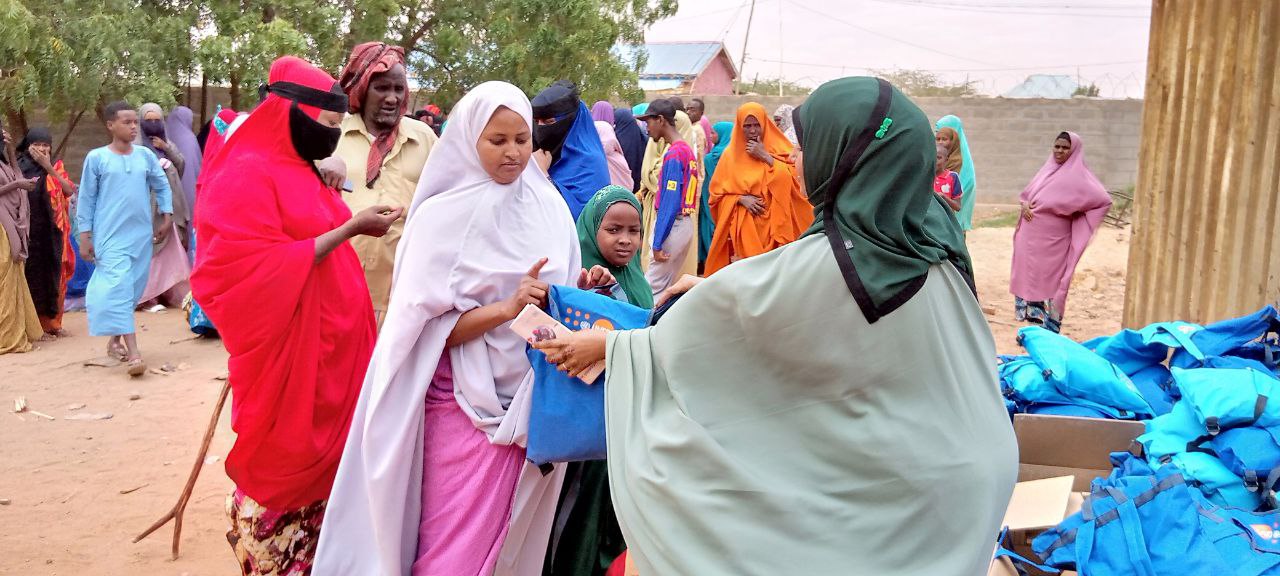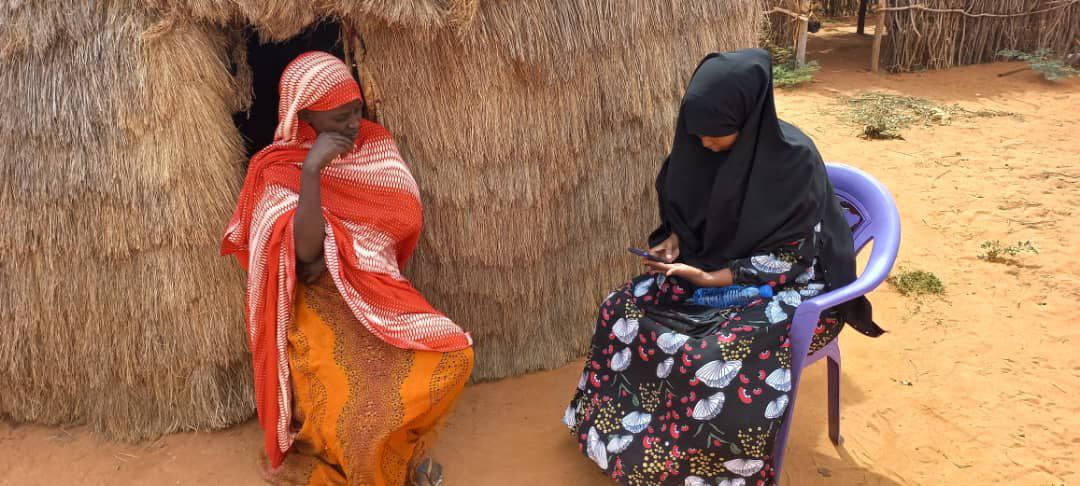
Due to a myriad of socio-economic factors, women and girls face significant barriers to managing their periods safely, but NCA is helping bridge that gap in Somalia and SNNP Regions.

Distribution of menstrual management kits in the Somali Region. Photo: Tinbit Esayas/ NCA.
The challenges related to menstrual management are even more aggravated during humanitarian emergencies such as conflict and drought.
Women and girls often find themselves in dire need of such basic hygiene materials to interact comfortably in public and access humanitarian assistance.
The cost of menstrual management materials such as sanitary pads, the lack of running water, and the absence of latrines/disposal facilities are among the main factors. In addition, the negative perception and stigma around menstruation often mean women and girls are limited from social activities and hence from daily life.
- Hygienic materials have a direct dignity, health, education, and protection impact on women and girls. Most importantly, it impacts the mobility, community involvement, family functioning, economic participation, and safety & security of women and girls, notes Tinbit Esayas, GBV in Emergency Programme Advisor with NCA Ethiopia.
- Providing women and girls with dignity kits during emergencies is vital to restore their dignity and safety, she adds.
In August 2021, with the support of the Central Emergency Response Fund through UNFPA, NCA Ethiopia’s GBV in Emergency under its humanitarian emergency programme intervened in five districts of the Somali Region, Ethiopia.
The goal was to narrow the Dignity Kit gap women and girls face and to simultaneously raise awareness on gender-based violence through community discussion and information, education, and communication materials.
NCA Ethiopia distributed 20,000 Dignity Kits it received in-kind from UNFPA to internally drought-affected women and girls in Bokolmayo, Charati, Dolobay, Hargele, Dolo Ado Woredas of Somali Region through its partner OWDA. The kit contained disposable sanitary napkins, underwear, bath soap, comb, powder detergent, reusable sanitary pads, torchlight, bag/backpack, toothpaste, and toothbrush.
- The Dignity Kit has helped me accomplish my daily routines without shame. It has also helped with my confidence. After receiving the items, my hygiene has improved and I am managing my period properly. I am now not ashamed to travel to any social function,” said Nurto Mohamed Adan, a rights-holder from Sigalo locality.

Data collector interviews a rights-holder on the dignity kit she received. Photo: Tinbit Esayas/ NCA.
- When we use the sanitary pads, our clothes remain clean. We can move freely from place to place and no longer feel ashamed because of our menstruation, added another rights-holder from the Sigalow locality.
Following the distribution, NCA Ethiopia conducted a post-distribution assessment to identify the existing gaps and challenges, determine appropriateness, and evaluate the proper use and benefit of the items distributed.
According to the findings of the assessment, the Dignity Kit has brought significant benefits to the day-to-day life of women and girls who are living in the IDP sites. Though the respondents put different priority preferences, it was presented both in focus-group discussion and household surveys that all the items included in the kit are vital for undertaking their routine and meeting hygiene needs.
NCA Ethiopia and its local partner AFD are similarly distributing 10,000 dignity kits in SNNPR to address the menstrual management needs of women and girls.
Published: